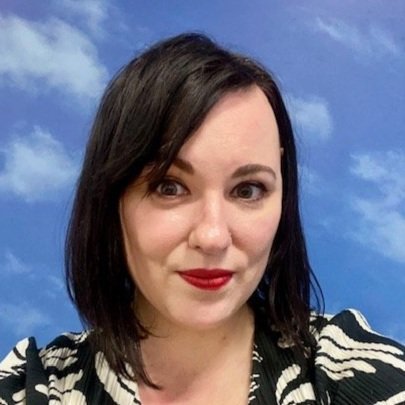A chat with Sarah Crowson
Sarah Crowson is the Data Manager for Eden and Desmond. With an expertise in public health and epidemiology, Sarah is now focused on analysing data and uncovering current trends from the two diabetes education programmes.
Here she talks about the power of diabetes education, how to address the low number of people attending structured education programmes and what the future of diabetes care looks like.
Tell us about your role as the Data Manager for Eden and Desmond. What does it entail?
It entails a lot. So, for Desmond I mainly look at the data we get back for our face-to-face programmes, as well as our online MyDesmond programme, little interventions and research projects that have been put in place. So, I keep track of how many people are going through the programme and seeing what their responses are. But mainly I look for trends in the data. Are we seeing responses in a certain location within a certain population? Are we not meeting the needs of certain populations? For example, looking at data from our Babysteps project about type 2 diabetes potentially occurring after pregnancy to compare the outcomes of those in our project with the national outcomes. It is exciting being a detective looking for trends.
In Eden I also keep track of anything that comes in that has numbers. I also create the evaluation pieces for each piece of education we do. A lot of time when we are commissioned to do a piece, it needs to meet the specific needs of that organisation. With my background in public health and epidemiology, I also then work with the educators on a lot of projects to really impart some of that information into what they are teaching.
Is there anything interesting that the data is showing at the minute?
The Babysteps project was just in Leicester. We are really diverse here in the city. We do have populations that have a really high prevalence for gestational diabetes and type 2 diabetes. It’s promising with some intervention that even though we have populations with high prevalence we can reduce it a little bit. So, it’s possible that the data is going that way.
How did you get into this sector?
It was a long road. So, I have my Masters in Public Health specialising in epidemiology and I’m currently in a PHD programme focusing on community health. I put myself through my Masters as a massage therapist because it was flexible hours and as a single mum at the time that was what I needed. Then I actually started to work in higher education in clinical nursing education. I was drawn to that because previously I had worked in a non-clinical role in a neonatal intensive care unit. That really sparked my interest in public health.
I was looking for a job that I could grow with and hopefully find my footing within the sector. It was in the middle of COVID so not a lot of places were hiring. Then, I found this job and I asked them what is the potential of moving up and expanding. Given my background, they were excited to get me on board. So, I’ve been here the last two years.
What is the most exciting thing you have done in those two years?
I think it is something that we are working on right now. I won’t give all the details away but there is research funding available for different networks. With Eden, we have developed three really strong contenders for some of that funding. I am involved with each one of them and they all highlight deprivation and areas of health inequalities and is really focused on making a difference to that. I feel right now as a department and as an organisation within the Leicester Diabetes Centre (LDC) we’re really heading to some exciting territory that is going to make a true difference.
How important is education for healthcare professionals working in diabetes care and for people living with the condition?
We are based in Leicester, but we do things locally, nationally and internationally. In particular, in Leicester, we are the 18th most deprived local authority for income deprivation. 12 per cent of Leicester’s population resides in the five per cent of areas nationally for income deprivation. That has a research known effect on overall health. Clinicians are not given very much time to talk with their patients. They are given just moments; a few minutes and they have parameters that if you fall within this then we treat you within this.
I feel our goal as educators is to really open their eyes to the other factors behind the scenes that are taking part to influence health and to really see these people as individuals, focusing on patient-centred care. It is recognising that every person in every culture has a different definition of health. It’s really about creating that relationship with them so then the clinicians know they’ve done what they need to do and the person feels like they have been listened to and that their culture is respected.
What can be done to address the low number of people attending a structured education programme?
We as educators need to be understanding of the pressures put on clinicians. They are told that they have to attend education, but they are not given the time to do so. A lot of our cancellations come not because they don’t want the class but because at the last minute their clinic is overwhelmed, and they can’t get away. So, maybe relooking at how and when we offer the programmes. We do try and do a blend of online and face-to-face. Even if it’s during someone’s lunch time or if they can listen whilst doing other things, they still have an opportunity to participate.
I also think it’s us conveying the importance of the education. We need to say why is it useful to them and explain to them how it will truly help them. It’s not just something they are told to do for accreditation but something that will make their practice a lot more meaningful.
What are Eden and Desmond trying to do with education and inequity?
Desmond is really great. It starts with a philosophy of self-management with diabetes. Because we have such a strong framework it can be adapted to any population or geographical area. Desmond is really strong at going out there and finding the people who really need it and then working with the community and the stakeholders in that community to make it adaptable for them so those who do face inequities. We can go to them, and we can make it relevant for them. Educators and clinicians in Desmond are really wonderful at keeping the message of Desmond there but making it relevant to them.
With Eden, what we’re starting to do now is we’re doing a lot of deprivation mapping, particularly for care homes. One of the really interesting statistics that has come out in our report writing is that not only do care homes in deprived areas obviously have residents, but they are also more likely to have workers that come from these deprived areas. Your average care home worker is not a registered or licensed healthcare official. They are someone who maybe got a basic qualification and is now working in their local community. So, we have acknowledged that they themselves have faced inequities in their own education and in their own pursuit to finding jobs and to improving your health literacy. A lot of our care home education is not only focussed on teaching them how to care for the elderly in their homes with diabetes. It also breaks down some of those education barriers and addressing those inequities. It is about getting them back to where they would be if they didn’t have those inequities.
What does the future of diabetes care look like?
It is part of a larger picture of diabetes. It is part of the multimorbidity process that goes on for a lot of people. There are so many factors – biological, social and environmental – that impact it. Understanding those social determinants of health and how other health issues within a person really affects diabetes is the way forward to prevention when we are discussing type 2 diabetes.
Also, early intervention when it is type 1 so we can address the mental help that comes as a result. Long-term health conditions that we address earlier might be reduced. Looking at it as a whole, it’s how we treat the person and not just the diabetes.

